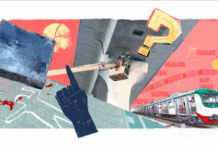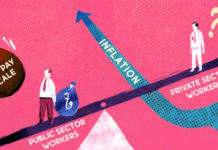

After the death of journalist Tofazzal Hossain, popularly known as Manik Mia, politician, journalist and litterateur Abul Mansur Ahmad wrote in a commemorative article titled “Jati Je Manik Harailo,” “It didn’t take us long to understand (what a gem we had lost); the countrymen understood it much later.” Unfortunately, now it seems the countrymen have forgotten Manik Mia as well as the valuable lessons he left for this amnesiac nation.
This article is an exercise of thinking Manik Mia’s thoughts—especially those on the dangers of autocracy, disenfranchisement of common people, and overdependence on bureaucracy—that hold relevance for today’s Bangladesh more than ever.
Manik Mia’s commitment to journalism and passion for freedom and democracy is reflected amply in his numerous columns published under the pseudonym Mosafir (traveller) in the Daily Ittefaq. But I want to discuss his less appreciated, semi-autobiographical work Pakistani Rajnitir Beesh Bochhor (Twenty Years of Pakistan Politics).
In the preface of the book, Manik Mia wrote, “As a journalist, I am well aware of the political trend of the country. As a concerned citizen, I have some responsibilities to my country and nation… I am well aware of my limitations. Still, I believe analysis of both the positives and negatives and the faults of past politics might help us to resolve our current crisis and identify the future course of action.” We should read Manik Mia’s thoughts in the same spirit.
A brief background of the book might be relevant here. Manik Mia was arrested on June 16, 1966. He had just recovered from a heart attack. The government shut down his newspaper, the Daily Ittefaq, and seized The New Nation Press. During his imprisonment, he planned to write on Pakistan’s political history with an analysis of the autocratic trend of the country’s politics. Due to poor health and mental stress, he couldn’t start it then, but he was determined to finish the task. After he was released from Dhaka Police Hospital on March 2, 1967, he started working on it. Within two months—from August 28 to October 27, 1967—he prepared a draft through dictation. But he couldn’t see the final manuscript. Manik Mia passed away on June 1, 1969. As per Manik Mia’s wish, his close associate and the executive editor of Ittefaq, Sirajuddin Hossain, took charge of editing the manuscript.
Unfortunately, we also lost Sirajuddin during the Liberation War. He was arrested by the Pakistan Army from his residence at Chamelibagh and never returned home. After Bangladesh became independent, it took 10 more years to publish the book since, according to the editor of the book, “the book contains some uncomfortable truth about certain politicians and political parties who don’t have the magnanimity to tolerate the truth.” Finally, the book was published in May 1981. It was edited by Manik Mia’s close friend Abdul Hafiz.
Throughout the book, one topic was visited frequently: the danger of unrestrained power. Referring to the successive autocratic rules in the first 20 years of Pakistan, Manik Mia warned that “naked and unbridled power creates such egoism in the human mind that it destroys common sense, morality, and even fear of God. When all state power is concentrated in the hands of a single person, there is never a shortage of flatterers in the hope of gaining his favour. They gather around the powerful person and, instead of informing him about the real situation of the country, the grievances of the people of the country, and the right attitude and thoughts needed to address those grievances, they keep him in the dark by repeating ‘everything is fine'” (Pg 23).
He identified that autocrats are guided by a common philosophy: “Après moi, le déluge” (this nihilistic expression of indifference to whatever happens after one is gone is attributed to King Louis XV of France). Manik Mia lamented that, although the autocrats are ousted at some point, the general people have to bear the consequences of autocratic rule for a long time.
Manik Mia also severely criticised the culture of hero worship in politics. Referring to Muhammad Ali Jinnah, he said, “There is no doubt about the political wisdom, leadership quality, and character strengths of Jinnah saheb, but those who ignore the contribution of common people to the independence movement and overemphasise the leadership of a single person, are either politically orphan or enemy of the people.”
Manik Mia also warned of overdependence on bureaucracy. He mentioned, as an example, the first finance minister of Pakistan, Ghulam Muhammad, a bureaucrat recruited to the finance ministry by the first prime minister of Pakistan, Liaquat Ali Khan. Although the newborn Pakistan was entangled in multiple crises—such as the lack of industrial development, two million refugees in excess of evacuees from Pakistan, disruption of the banking and insurance structure, and disproportionately heavy burden of defence expenditure—Ghulam Muhammad used to present surplus budget just to impress the countrymen and foreign audiences. The consequence of such overdependence on bureaucrats, Manik Mia testified, was that they gradually captured the state power and destroyed the democratic polity of Pakistan as well as the chance of building a pro-people socioeconomic policy structure.
Ghulam Muhammad became the third governor-general of Pakistan. His footsteps were followed by other civil and military bureaucrats like Chaudhry Muhammad Ali, Iskander Mirza, Ayub Khan, and Yahya Khan.
“The joy of independence made us oblivious to the fact that bureaucrats, however efficient they may be, have very little knowledge and experience about the problems of common people,” opined Manik Mia. He emphasised that in an independent state, only the people’s representatives have the right to prepare economic and social plans, and the bureaucrats’ duty is to implement those.
The book Pakistani Rajnitir Beesh Bochhor contains many such gems of insight. I must say, the best legacy Manik Mia left for us is the testimony of his time. He lived the foundational years of Pakistan, the legacy of which Bangladesh, although now an independent country, can hardly ignore. If we take account of the last 50 years of Bangladesh’s history, we can’t deny the fact that there have been many repetitions of the same mistakes pointed out by Manik Mia. If we fail to learn from these mistakes, we will continue to live in the proverbial farce that Karl Marx warned of, and that is worse than tragedy.
Shamsuddoza Sajen is a journalist and researcher.









